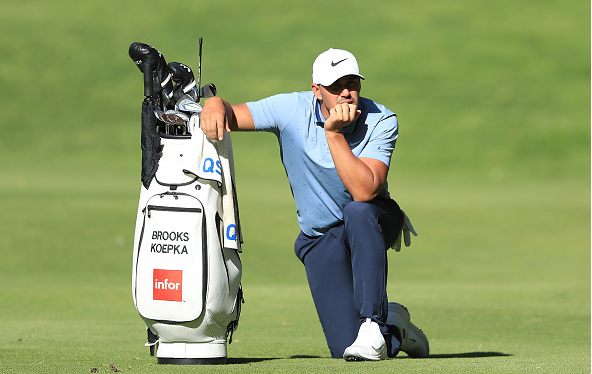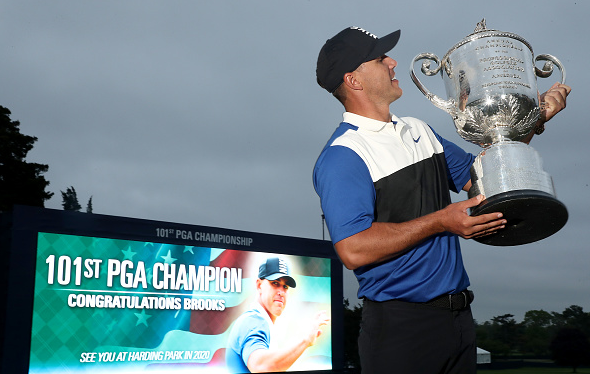
Brooks Koepka wins majors. It’s what he does. Four of the past nine majors on Tour (one of which he did not start) have been won by the 29-year-old Koepka, who has asserted himself as the modern day King of the Majors.
As for the U.S. Open? He is the two-time defending champion. He won the 2017 Open at Erin Hills, an incongruous score-fest where he tied the all-time event record by reaching 16-under, four strokes better than his closest competitor. Then, showing versatility by also taking a traditional U.S. Open set-up, Koepka won last year’s event at the brutally-difficult Shinnecock Hills, as his 1-over final score was one better than Tommy Fleetwood.
In the most recently-held major, Koepka won last month’s PGA Championship, the second year in a row he won THAT major. With that win he became the first player in Tour history to be the back-to-back defending champion at two majors, at the same time. If he is able to pull off the three-peat at the U.S. Open this week, he will become the first since Willie Anderson won his third straight in 1905. Since 1952, Curtis Strange (1988 and 1989) is the only other golfer to even win two in a row. The U.S. Open is a very difficult event to figure out, but Brooks seems to have somehow cracked the code.
Koepka credits his ability to ignore the noise, and stay calm while in the arena.
“Just being able to reset. Being able to block things out and turn a negative into a positive. I watched a six-shot lead disappear very quickly. And walking to that 15th tee you could be very upset,” said Koepka on Tuesday at Pebble Beach.
“I could have pouted about it. I could have done a million different things. But instead just turned that into — I’ve still got a 1-shot lead.
“DJ has to make something happen if he wants to catch me. I was actually really proud of myself the way I spun that mentally and really turned that into something as a “I’ve got to go out and go do something.” And hit great shots coming down the stretch, especially when I needed to, finding fairways on 15, 16, being straight into it that wind. That ball starts to move at all, it’s gone, it’s gone right or it’s gone left, and you can very easily rack up a number there.”

Rightfully ranked No. 1 in the OWGR, Koepka will attempt to continue a phenomenal 2019 season this week that has seen him win twice and finish runner-up twice. In addition to winning the PGA Championship, he also finished co-runner-up to Tiger Woods at The Masters, being the last player in the field effectively eliminated before Tiger was able to coast on 18.
Strangely, Koepka has only two career victories in non-majors, and he finished T50 at last week’s RBC Canadian Open, but something clicks for him in majors. He is the current favorite coming into the week, which should surprise nobody.
“I haven’t talked to anybody about going three in a row. I’m not thinking about it. I know the odds are stacked up probably even more against me now to go three in a row than to back it up,” said Koepka.
“It’s hard to win the same event three times in a row. I don’t know how many times it’s even been done on the PGA Tour, let alone a major championship.”
A win this week would tie him with the little known, but immortal, Willie Anderson, who is the only golfer to have won three straight U.S. Open titles. The Scotsman won his three U.S. national golf championships in 1903, 1905, and 1905.
“About Willie Anderson, it’s funny, we were in Scotland, I think it was last year, and we saw his name on a building I guess where he used to live or something like that, which is pretty cool. But I don’t know too much about him,” said Koepka.
“Obviously that was a long, long time ago. What was it, a hundred years? Hundred-and-some years?”






































